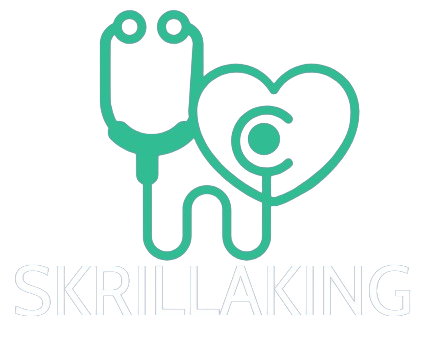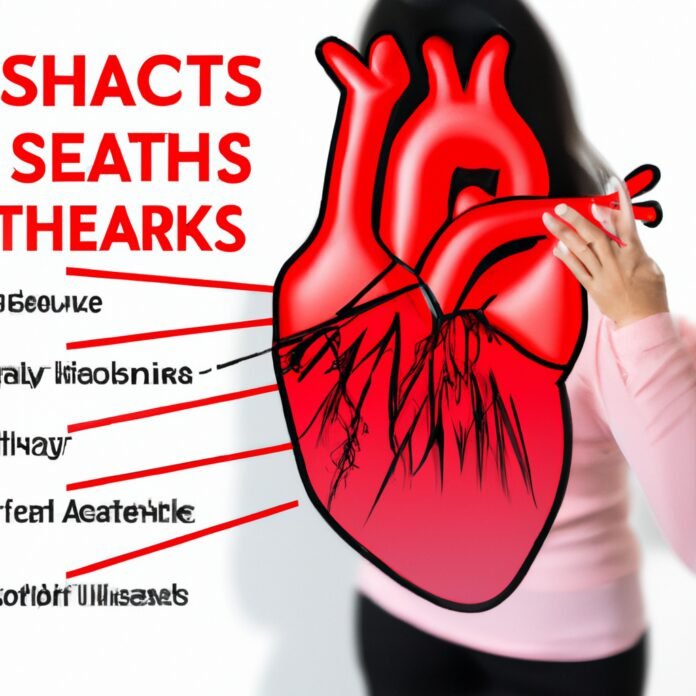We’ve all heard the adage, “knowledge is power” – and it has never been more true than when it comes to knowing the warning signs of a heart attack. Women, in particular, need to be mindful of the warning signs, as heart-related illnesses can present differently in women than they do in men. To help keep women heart-smart, let’s look at the symptoms of a heart attack as they are experienced by women.
1. Uncovering the Signs of a Women’s Heart Attack
Heart attacks may seem like a purely male domain, but even women need to be aware of the signs and symptoms. Heart attacks can happen to anyone – regardless of age, gender and fitness level.
According to the American Heart Association, one in four women who have heart attacks die of them. To improve these numbers, we must recognize the symptoms:
- Chest pain or discomfort – This is the most common symptom of a heart attack. However, some women might only feel mild chest pain or discomfort.
- Upper body discomfort– Some women have reported feeling pain or discomfort in their arms, back, neck, jaw or stomach. This type of pain or discomfort in the centre or left side of the body is referred to as “indigestion-like” pain.
- Shortness of breath– Women who have had heart attacks describe feeling short of breath several days before the actual attack.
- Nausea or vomiting– Nausea and even vomiting are common for women suffering heart attacks.
- Excessive fatigue– Feeling fatigued or drained for days or even weeks preceding a heart attack is not abnormal. However, if these feelings persist, it’s important to get checked.
These symptoms are often experienced together, and can range from mild to severe. It’s always best to have any symptoms checked by a medical professional as soon as possible.
By understanding the signs and symptoms of a women’s heart attack, we can all take charge of our own long-term heart health and reduce the number of heart-related deaths.
2. Don’t Ignore the Unexplained Symptoms of a Heart Attack
When it comes to health issues, it’s always important to seek medical help if you have unexplained symptoms or changes to your health. This holds particularly true with a heart attack, where the signs and symptoms may be more subtle at the start and need to be taken seriously.
It’s easy to ignore or brush off chest pain or other symptoms, especially for someone under stress or with a family history of heart trouble. But paying attention to the signs of a heart attack could potentially save a life.
Here are some signs that shouldn’t be overlooked:
- Pressure, fullness, or squeezing sensation in your chest
- Pain or discomfort in one or both arms, your back, neck, jaw, or shoulder
- Nausea and vomiting
- Shortness of breath
- Sweating
- Lightheadedness or sudden dizziness
If you experience any of these symptoms or have any concerns about your health, it’s important to talk to your doctor or seek emergency medical help. If you have a family history of heart disease, it’s important to pay extra attention and be aware of the risk factors in order to take steps to help prevention.
3. Learn to Listen to Your Body: Women’s Heart Attack Symptoms
Heart disease is the leading cause of death among women in the United States. Learning about the symptoms of a heart attack is an important part of protecting your health and safety. Women often experience different heart-attack symptoms than men, and it can be harder to detect.
Watch for the following signs of a potential heart attack:
- Shortness of breath
- Pain or discomfort in the chest
- Nausea or vomiting
- Pain in the jaw, arms, or shoulder
- Feeling lightheaded or dizzy
Be aware of your body and how it responds to stress. It’s okay to take a step back and prioritize your health in times of emotional or physical stress. Nothing is more important than your well-being.
If you experience any of the above symptoms, it is important to seek immediate medical attention. Don’t ignore the signs, as they could be the warning of an impending heart attack. Talk to your doctor about your risk factors and the best course of action to take in order to protect yourself.
4. Recognizing the Warning Signs of Heart Attack in Women
Women are just as likely to suffer from a heart attack as men are, although the warning signs may not be the same. Heart attacks can be more difficult to identify in women since they may not experience the common symptoms that men typically present.
One of the most important aspects of caring for your heart health is to recognize potential warning signs of a heart attack. Common signs to be aware of include:
- Unexplained fatigue: Women experiencing sudden, unexplained fatigue—even after minimal physical activity—should get checked out.
- Pain in the jaw or neck: Women can feel jaw or neck pain as chest pain or angina.
- Shortness of breath: If you experience unexplained breathlessness, it can be a sign of a heart attack.
- Indigestion: Some people may experience indigestion which can manifest as chest pain.
It is important to be aware of the connections between different symptoms and the potential warning signs of a heart attack. While it is possible that the symptoms may not be related to a heart attack, it is always best to err on the side of caution and seek medical assistance.
If you are in doubt, the best thing to do is to phone emergency services immediately. Time is of the essence when it comes to preventing further complications from a heart attack and getting timely and appropriate treatment.
5. Medical Treatment: Don’t Underestimate a Women’s Heart Attack
Women are less likely than men to experience a heart attack — but when they do, the symptoms of a women’s heart attack might be different from a man’s. Studies suggest that women can experience more vague and harder-to-spot symptoms of a heart attack — such as fatigue, dizziness, weakness, or upper abdominal pain — that can easily be mistaken for other conditions.
That’s why it’s especially important for women to be aware of their health and seek medical attention immediately if they experience any of these symptoms. And don’t be afraid to ask your doctor for diagnostic tests such as electrocardiograms (ECGs) or an echocardiogram to rule out heart complications.
Getting proper medical treatment is essential to prevent and treat a heart attack. Treatments for a heart attack should always be tailored to the individual’s needs, but may include:
- Medications: Medications to help reduce pain, lower cholesterol, reduce blood clots, control irregular heart rhythms, and regulate blood pressure.
- Lifestyle changes: Eating healthy foods, quitting smoking, increasing physical activity, and reducing stress.
- Cardiac rehabilitation: Programs that provide customized treatments for heart disease patients in order to improve heart health and quality of life.
- Surgery: angioplasty, coronary artery bypass grafting, or valve surgery.
Don’t wait to seek medical treatment if you’re experiencing symptoms that could indicate a heart attack — the sooner you get help, the better! Early diagnosis and treatment can greatly improve your chances of surviving and recovering from a heart attack.
It’s important for both men and women to recognize heart attack symptoms in order to reduce the chances of serious health complications and to ensure timely treatment. Women may experience a variety of heart attack warning signs, some of which are unique to the female population. Knowing and recognizing the warning signs of a heart attack can give you peace of mind and a valuable sense of control in your physical health.


